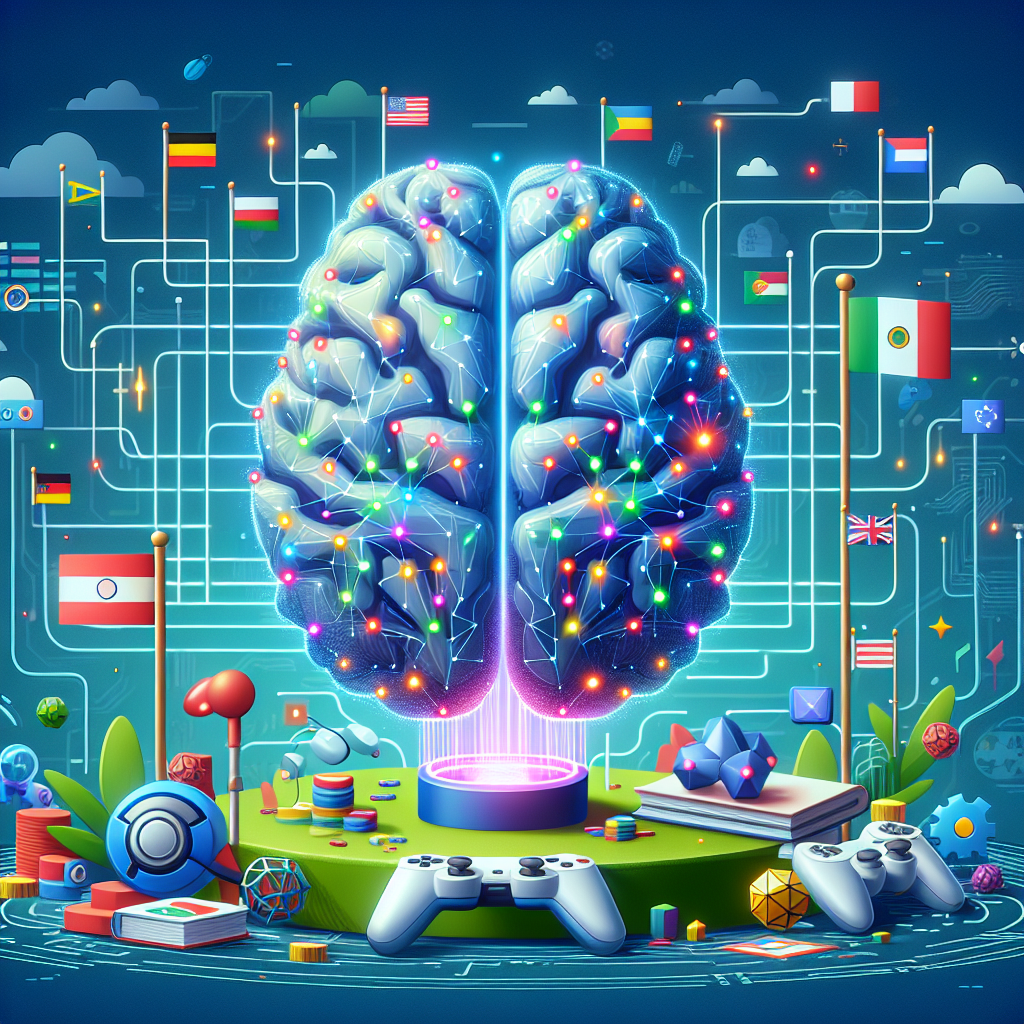Artificial Intelligence (AI) has been making significant strides in various industries, including the gaming industry. One area where AI has had a major impact is in the development of game localization tools. Game localization is the process of adapting a game to different languages and cultures in order to make it accessible to a global audience. AI-powered localization tools have revolutionized this process, making it faster, more accurate, and more cost-effective.
One of the key ways in which AI has transformed game localization is through machine translation. Machine translation uses AI algorithms to automatically translate text from one language to another. This technology has become increasingly sophisticated in recent years, with AI-powered translation tools now able to produce translations that are nearly indistinguishable from those done by human translators. This has significantly reduced the time and cost involved in localizing games, as developers no longer need to rely on human translators to manually translate large volumes of text.
Another way in which AI has improved game localization is through natural language processing (NLP) technology. NLP allows AI algorithms to analyze and understand human language, enabling them to accurately translate idiomatic expressions, slang, and other nuances that are often lost in traditional machine translation. This has helped to improve the quality of localized games, making them more engaging and culturally relevant to players around the world.
AI-powered localization tools also offer developers the ability to automate the testing and validation of localized content. These tools can automatically identify and flag any errors or inconsistencies in translated text, helping to ensure that the final product is of the highest quality. This has helped to streamline the localization process, allowing developers to release games in multiple languages more quickly and efficiently.
In addition to improving the quality and speed of game localization, AI-powered tools also offer developers valuable insights into the preferences and behaviors of players in different regions. By analyzing data from localized versions of their games, developers can gain a better understanding of how to tailor their content to specific markets, increasing the chances of success in those regions. This data-driven approach to localization has become increasingly important in an industry that is becoming more globalized and competitive.
Despite the many benefits of AI-powered game localization tools, there are also some challenges and limitations that developers need to be aware of. One of the main challenges is the potential for errors in machine translation. While AI algorithms have made great strides in recent years, they are still not perfect and can sometimes produce inaccurate or awkward translations. Developers need to carefully review and edit machine-translated text to ensure that it is of the highest quality.
Another challenge is the need for human oversight in the localization process. While AI-powered tools can automate many aspects of localization, human translators and editors are still essential for ensuring that the final product meets the highest standards of quality. Developers need to strike a balance between automation and human intervention in order to achieve the best results.
Overall, AI has had a transformative impact on the development of game localization tools, making the process faster, more accurate, and more cost-effective. By harnessing the power of AI, developers can create games that appeal to a global audience and maximize their chances of success in an increasingly competitive industry.
FAQs
Q: Are AI-powered localization tools able to translate all languages?
A: While AI-powered localization tools are capable of translating a wide range of languages, there are still some languages that present challenges for machine translation. Languages with complex grammar rules or a lack of digital resources may be more difficult for AI algorithms to accurately translate.
Q: How much does it cost to use AI-powered localization tools?
A: The cost of using AI-powered localization tools can vary depending on the specific tools and services that are being used. Some tools offer subscription-based pricing models, while others may charge on a per-project basis. Developers should carefully evaluate the cost of different options to determine the best fit for their budget.
Q: Can AI-powered localization tools replace human translators?
A: While AI-powered localization tools have greatly improved the efficiency of the localization process, they are not able to completely replace human translators. Human translators are still needed to ensure the highest quality of translations, especially for languages with complex nuances and cultural differences.
Q: How can developers ensure the quality of machine-translated text?
A: Developers can ensure the quality of machine-translated text by carefully reviewing and editing the translations for accuracy and readability. It is also important to engage with native speakers and professional translators to provide feedback and guidance on the localization process.

